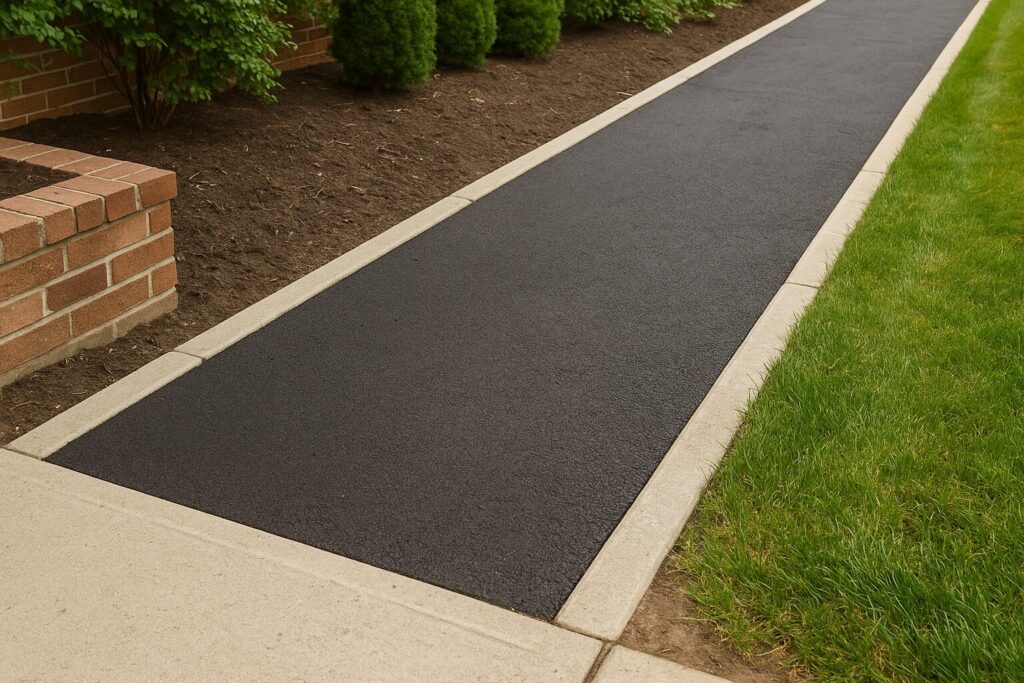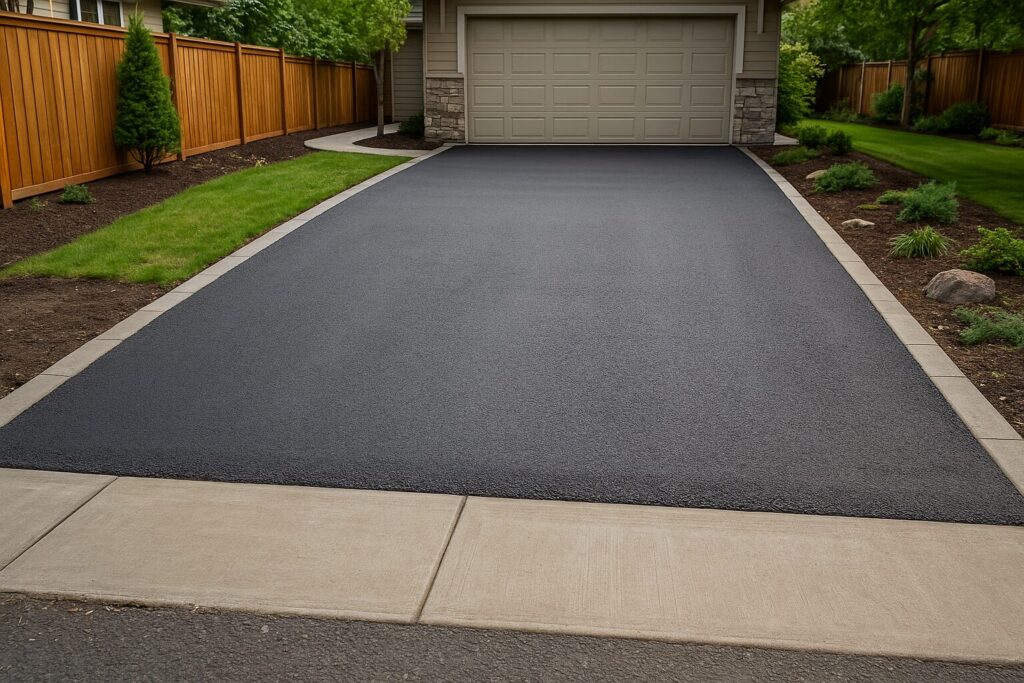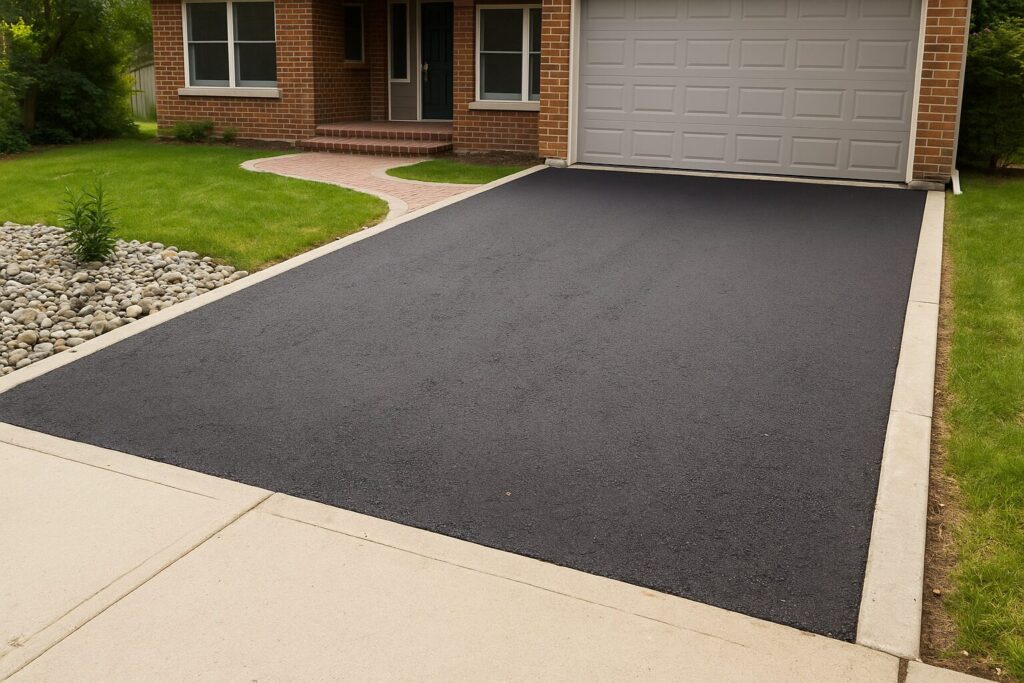Looking to upgrade your old driveway or patio without breaking the bank? You’re not alone — many Canadian homeowners are searching for reliable and affordable paving solutions that can withstand the country’s unpredictable climate. From the first spring thaw to the deep freeze of January, you need a surface that’s not just cheap to install, but tough enough to last. In this comprehensive guide, we’ll cover the most cost-effective materials, smart installation tips, and professional insights from experienced paving contractors across Canada. Whether you’re interested in asphalt for quick turnaround or concrete for durability, you’ll find practical, tested ideas to help you choose wisely and save money in the long run.

Before you start: budget vs. lifecycle cost (and what “cheap” really means)
Upfront spend versus long-term maintenance in Canadian climates
When it comes to paving, cheap doesn’t always mean smart. Many homeowners focus only on initial installation costs, forgetting that maintenance can quickly add up over time. For instance, a gravel driveway might seem affordable at first, but frequent regrading, weed control, and dust management can double your costs within a few years. In contrast, investing slightly more in asphalt paving or a basic concrete surface may extend longevity and reduce yearly upkeep. In Canada’s freeze–thaw cycle, where water and frost cause constant expansion and contraction, selecting materials that handle stress well can prevent costly replacements later.
Base prep, drainage, and frost heave: why the subbase makes or breaks savings
The secret to a long-lasting, low-cost driveway lies beneath the surface. A properly compacted subbase ensures stability, prevents frost heave, and keeps water from pooling under your pavement. Many DIYers skip this step to save time, only to face cracks and ruts within a season or two. Professional paving contractors know that in Canada’s wet fall and icy winter, a well-prepared base can make an inexpensive material perform like a premium one. Investing in geotextile fabric and quality granular fill may slightly raise upfront costs, but it will drastically reduce future repair expenses.
DIY or hire? Safety, equipment, and where paving contractors add value
While DIY paving can be appealing, certain materials and conditions require expertise. Professionals bring specialized equipment, knowledge of local soil behavior, and access to higher-quality mixes. A contractor can also help you calculate slope and drainage — key factors in preventing standing water and erosion. Moreover, professionals often secure materials at wholesale rates, which can offset part of the labour cost. In the long run, hiring a qualified paving contractor ensures a safer, smoother finish and minimizes the risk of premature failure.
The cheapest paving options ranked (quick overview)
Before diving into specifics, let’s rank the main contenders by affordability and durability. Gravel is the go-to option for tight budgets and rural properties. Recycled asphalt (RAP) sits in the sweet spot between low cost and decent longevity. Chip seal brings added texture and traction, offering a mid-tier choice that looks polished. Cold mix asphalt is best for patching or temporary fixes, while overlays and simple concrete slabs give you lasting value if your base is solid. The right choice depends on how much you’re willing to maintain and how harsh your winters get.

Gravel: the bare-minimum winner for long lanes and cottages
Gravel remains the king of affordability in Canada’s countryside. It’s quick to install, requires minimal specialized equipment, and gives driveways a rustic charm. However, you’ll need to plan for seasonal upkeep — expect to grade at least once or twice a year, especially after snowmelt. Dust can become a nuisance during dry spells, so applying calcium chloride helps keep particles down. A proper base layer and solid edging are essential to prevent gravel from migrating, and using angular rather than rounded stones improves compaction and stability.
Recycled asphalt (RAP): low-cost, solid, and winter-resilient
Recycled asphalt, or RAP, is gaining traction across Canada as an eco-friendly and cost-effective option. Made from reclaimed road pavement, it offers many of the same benefits as hot-mix asphalt at a fraction of the cost. Once compacted, RAP forms a semi-solid surface that sheds water effectively and resists rutting under light traffic. Its dark finish absorbs heat, helping snow melt faster in the winter. For homeowners wanting a more refined look than gravel but without the expense of full asphalt paving, RAP is an excellent middle ground.
Chip seal (tar-and-chip): affordable upgrade with better traction
Chip seal combines the strength of asphalt with the texture of crushed stone, creating a surface that’s durable, slip-resistant, and visually appealing. It’s a favourite among rural municipalities and property owners seeking a balance between cost and aesthetics. The process involves spraying a layer of liquid asphalt, covering it with small stones, and compacting it to form a cohesive, textured surface. In Canadian climates, chip seal performs well against frost and offers better traction during icy conditions. Its light-reflective finish also helps keep driveways cooler in the summer months.
Cold mix asphalt: the DIY special for spot repairs
Cold mix asphalt is the handyman’s friend — easy to apply, available in bags, and ideal for quick repairs. It’s a great option for patching potholes, filling cracks, or levelling low spots without hiring professionals. However, it’s not meant for full driveways, as it lacks the durability of hot mix. In areas prone to heavy freeze–thaw cycles, cold mix can degrade faster, requiring more frequent touch-ups. Still, for homeowners looking for a temporary, budget-conscious fix, it’s a practical solution that can extend the life of existing pavement.
Asphalt overlay (resurfacing): the smart mid-budget refresh
When your driveway is structurally sound but looks aged or cracked, an asphalt overlay is the perfect compromise. Contractors lay a fresh layer of hot mix asphalt over the old surface, instantly improving both appearance and functionality. It’s significantly cheaper than a full excavation and repave, and with proper preparation, it can last up to 15 years. Always ensure the underlying base is dry and stable before overlaying — otherwise, hidden drainage issues will resurface quickly. For many homeowners, overlays provide the “new driveway” look without the premium price tag.
Concrete on a budget: broom finish, not fancy price
Concrete might sound expensive, but basic broom-finished slabs offer impressive durability for a reasonable cost. They handle temperature swings and heavy loads better than asphalt, making them ideal for sloped driveways or parking pads. In Canada, using air-entrained mixes prevents cracking from freeze–thaw stress, and adding control joints every few feet ensures even expansion. While decorative stamped concrete or coloured finishes raise costs, you can start with a simple pour and upgrade later. For long-term value, concrete remains one of the smartest “cheap but strong” paving materials.
Interlocking pavers: value plays without breaking the bank
Interlocking pavers might seem high-end, but economy models and simple layouts can keep costs surprisingly low. Choose standard rectangular pavers and a classic running bond pattern to save on cutting and labour. They’re easy to repair — just lift and reset damaged units rather than replacing entire sections. With the right base preparation, interlock can handle freeze–thaw movement better than poured concrete. Use polymeric sand to lock joints and prevent weeds, and you’ll enjoy a premium look with manageable maintenance.
Quick-lay tiles and deck squares: fast installs for small areas
For balconies, patios, and compact urban spaces, interlocking deck tiles or quick-lay systems are a game changer. These systems require no mortar or screws — they simply click together over a flat surface. Materials like recycled composite wood or porcelain resist moisture, fading, and cracking. They’re removable too, making them perfect for renters or short-term upgrades. A clean, level sub-base ensures proper drainage and extends lifespan, while the modular design lets you replace only worn sections later.
Creative low-cost ideas that elevate cheap materials
Cheap doesn’t have to mean boring. Combine stepping stones with gravel paths for a playful, custom look that guides the eye through your garden. Reuse leftover bricks, broken tiles, or reclaimed slabs to create a patchwork pathway with character. For natural charm, slice logs into rounds and embed them in compacted sand to form a woodland-style trail. Even old concrete slabs can be revived with paint — a white base coat and colourful stencils can create a terrazzo-inspired finish at a fraction of the price. The key is mixing creativity with solid prep for durable, attractive results.
Cost control 101: how to keep your paving project on budget
Start by paving only the areas that matter most — the entrance, parking pad, or walkway. You can always extend later as funds allow. Combining materials, like a gravel base topped with recycled asphalt, offers a smart hybrid that balances cost and performance. To save on labour, consider scheduling your project during shoulder seasons when contractors have more flexibility. Bulk purchasing aggregates or sharing mobilization costs with neighbours can further cut expenses. Always request detailed written quotes to avoid hidden fees and ensure you’re comparing apples to apples.

Working with paving contractors in Canada
Professional paving contractors do more than just lay material — they bring technical insight and long-term value. Always ask for documentation on base depth, compaction, and mix design, whether it’s asphalt or concrete. Local regulations may dictate drainage, setbacks, and driveway widths, so ensure your contractor is familiar with municipal standards. In cold regions, discuss maintenance plans such as crack sealing, resealing, or snow-friendly blade types to extend surface life. With the right team, even a budget paving job can look high-end and last for decades.
What is the cheapest form of paving on a budget?
For most Canadians, compacted gravel remains the most affordable option, especially for long rural driveways. However, it demands seasonal upkeep and dust management. If you want something smoother and cleaner, recycled asphalt is a close second — more durable and easier to plow in winter. For small patios or walkways, stepping stones or quick-lay tiles offer cost savings with visual appeal. The best “cheap” choice ultimately depends on how much time you’re willing to spend maintaining it.
What is the cheapest pavement option?
Among solid surfaces, asphalt paving generally wins for affordability. It installs quickly, provides a neat finish, and performs well under heavy use. While plain black asphalt may not be the most stylish, it’s functional and easy to repair. Adding a tar-and-chip finish can upgrade the look without a huge jump in cost. In urban settings, concrete or interlock might have higher upfront costs but deliver better resale appeal and lower maintenance over time.
What is the cheapest way to pave an area?
The cheapest approach is to limit hardscape coverage – pave only high-traffic zones and fill the rest with gravel or compacted screenings. Using stepping stones or recycled materials can further cut costs. For driveways, combining gravel with a recycled asphalt top layer gives a stable surface at a fraction of the cost of hot mix. Always ensure proper grading and base preparation to avoid costly drainage issues later. Smart design and phased planning go a long way toward keeping total spend low.
What is the cheapest alternative to pavement?
If traditional pavement isn’t an option, stabilized gravel, log round paths, or modular deck tiles are all affordable alternatives. These options provide structure without heavy machinery or professional installation. Stabilized gravel uses binders to reduce dust and erosion, making it suitable even for driveways. Wooden or composite rounds create a warm, natural aesthetic, while interlocking tiles can transform patios in a single afternoon. Each option offers flexibility and style, proving you don’t need full paving to achieve a polished look.
Next steps: get apples-to-apples quotes from paving contractors
Once you’ve chosen your preferred material, it’s time to gather quotes. Request itemized estimates detailing excavation, base prep, material quantities, and finish specifications. Clarify whether sealcoating or reinforcement is included, as this can significantly affect pricing. Ask contractors about warranties and references – good firms stand behind their work. A well-structured comparison will help you spot inflated labour rates or missing steps that could compromise quality. With the right preparation and a bit of expert guidance, you’ll achieve a cost-effective, long-lasting surface built to withstand Canadian weather.
